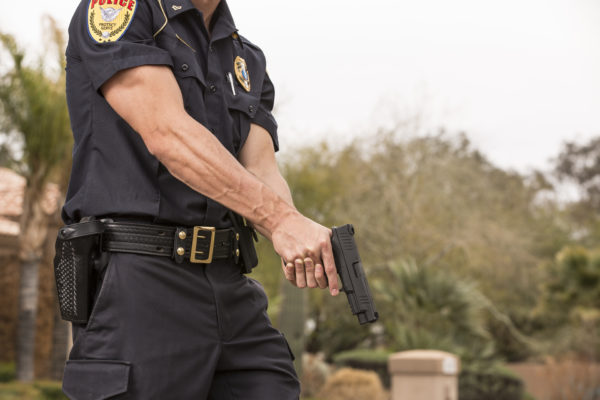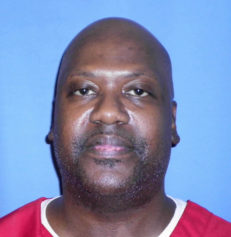Increasing racial diversity in police departments might not be the key to reducing the number of Black men gunned down by police, according to a new nationwide study.
The report, published in the Proceedings of National Academy of Sciences this month, examined over 900 deadly police shootings in 2015 and found that white officers were no likelier to shoot African-Americans than Black officers were.

Researchers concluded found that the rate of violent crime by each racial group is linked to the likelihood of civilians from that racial group being shot by police. (Photo: Getty Images)
As reported by The Economist, researchers with the University of Maryland and Michigan State University combed through lists of fatal police shootings compiled by The Guardian and The Washington Post, then reached out to each of the departments to confirm the race of the officer involved.
Not only did they find that Black cops were just as likely as whites to fire on Black civilians, but that Black officers were, in fact, more likely to kill Black civilians, considering that officers are often drawn from the communities in which they work.
Joseph Cesario, co-author and professor of psychology at MSU, claims the driving force behind the fatal shootings isn’t race, but rather violent crime.
“We found that the race of the officer doesn’t matter when it comes to predicting whether black or white citizens are shot,” Cesario told MSU Today. “Our data show that the rate of crime by each racial group predicts the likelihood of citizens from that racial group being shot. If you live in a county that has a lot of white people committing crimes, white people are more likely to be shot. If you live in a county that has a lot of black people committing crimes, black people are more likely to be shot.”
“It is the best predictor we have of fatal police shootings,” he added.
According to the report, between 80 and 90 percent of people shot by police were actively attacking officers or other civilians when they were gunned down.
The study bolsters previous research by economist Roland Fryer, who published a controversial paper in 2016 examining racial bias against African-Americans by police. His analysis found that while Blacks bore the brunt of physical force by police, they were no more in danger of being shot than their white counterparts. In fact, a closer analysis of police shootings in Houston, Texas showed the police were more likely to shoot whites civilians than Black ones.
Unlike the MSU and University of Maryland’s study, Fryer’s research only focused on a handful of U.S. cities rather than the nation as a whole.
“Until now, there’s never been a systematic, nationwide study to determine the characteristics of police involved in fatal officer-involved shootings,” Cesario said. “There are so many examples of people saying that when black citizens are shot by police, it’s white officers shooting them. In fact, our findings show no support for the idea that white officers are biased in shooting black citizens.”
So what do these findings mean for policymakers? The typical response to Black folks being shot by white cops are calls for increased diversity within the department, however, researchers say that might not be enough.
While diversifying the force may have positive effects on trust and strengthening community-police relations, it is unlikely to reduce the number of minority citizens shot by police.
“This suggests that reducing fatal shootings of racial minorities by police will require policymakers, civic leaders and ordinary citizens to address factors that lead to racial differences in violent crime, such as racial disparities in wealth, employment, education and family structure,” the study authors wrote.
While the study examined all fatal shootings, researchers warned that the data is still too uncertain to draw firm conclusions on different subtypes of shootings, such as those of unarmed citizens, and that further research is required.


